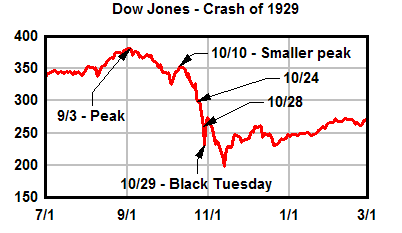Have you ever wanted to own a percentage of a company? If your answer is yes, then stock market investment might be for you. Before you put all your money into the stock market, you need to learn some important information prior to investing in stocks. You will find that information here.
Before going to a broker, you should do some background research to make sure you can trust them with your money. If you take the time to do some research, you will be less likely to become a victim of investment fraud.
Prior to using a brokerage firm or using a trader, you should always see what fees will be involved. You want to look into both the entry and exit fees for each trade executed. The fees can be quite sizable if you trade often and are a significant portion of your profit.
Be sure that you have a few different areas. If you decided to put all of your money into one specific investment and the company fails, you stand a chance of losing everything.
Spread your investment money out among different stocks. Put no more than 10 percent into any one stock. This will greatly reduce the likelihood of your equity being totally wiped out in the case of a rapid stock decline.
When you choose an equity to invest in, only invest five to ten percent of your total capital fund into that one choice. By doing this you protect yourself from huge losses if the stock suddenly going into rapid decline.
It is very essential that you are always looking over your portfolio a few times a year. This is because the fact that our economy is a dynamic creature. Some sectors will do better than others, and some may become extinct. The best financial instruments to invest in is likely to change from year to year.This is why it is critical that you keep your portfolio and adjust it as necessary.
An important part of investing is re-evaluating your stock portfolio periodically, such as every quarter. You should do this because today’s economy is always different. Various companies may have become obsolete as certain sectors start to outperform other sectors. Depending on the year, certain financial instruments may be better to invest in than others. Therefore, you should keep close tabs on your portfolio so that you can adjust it as needed.
Do not invest a lot of your money into a company that you work. Although you may feel a bit prideful about owning stock from your employer, it’s also very risky. If something bad occurs, both your regular paycheck and your investment portfolio would be in danger. However, if you get a discounted rate on showers, it can be worth investing some of your money in the company.
Keep investment plans simple if you’re just beginning. It is smart to prepare yourself for entering the market by reading up on many different investment strategies, but if you’re new in investing it is good to focus on one thing that truly works and stick to it. This will allow you money and enable you to stay in the market for the long term.
Do not invest too heavily in your company’s stock. While you might feel you are doing right to support your employer by buying company stock, your portfolio should never hold only that one investment. If the largest chunk of stock you own is that of your company’s and your company does poorly, you’ll lose a major portion of your net worth.
Invest in stocks that are damaged, not damaged companies. A downturn in a stock can be a buying opportunity, but the drop has to be a temporary one.When company’s miss key deadlines or make errors, you know its the perfect time to invest.
Steer away from stock market advice and recommendations that are unsolicited. Of course, you should always listen to the advice of your financial advisor, especially if the investments they recommend can be found in their own personal portfolios. No one has your back like you do, especially when a large amount of stock tips are being given by people who are paid to give advice.
Consulting a financial adviser can help you weigh options, even if you have decided to proceed on your own. Professional advisors can do more than help you pick which stocks to invest in. They will also sit down and tell you of your risk tolerance, and the time horizon associated to your financial goals. After this, both of you will be able to come up with a customized plan.
Now that you have read this article, would you like to begin investing? If you are still interested, proceed to take your baby steps. With these tips, you’ll be investing for profit soon.
